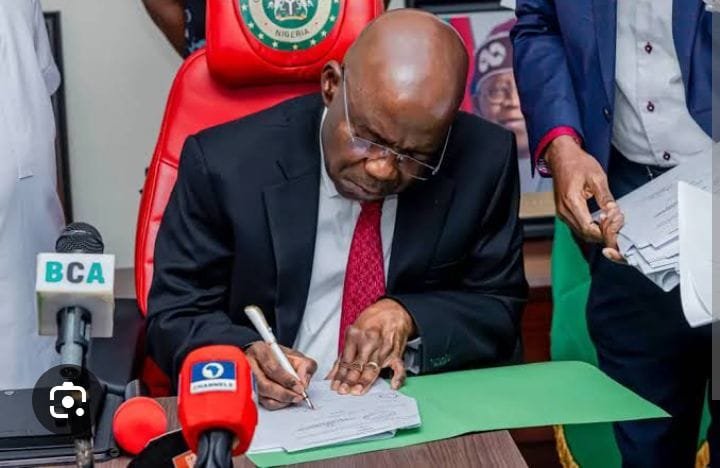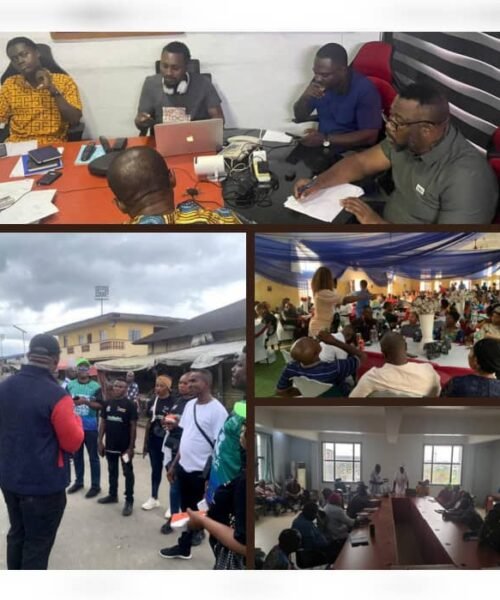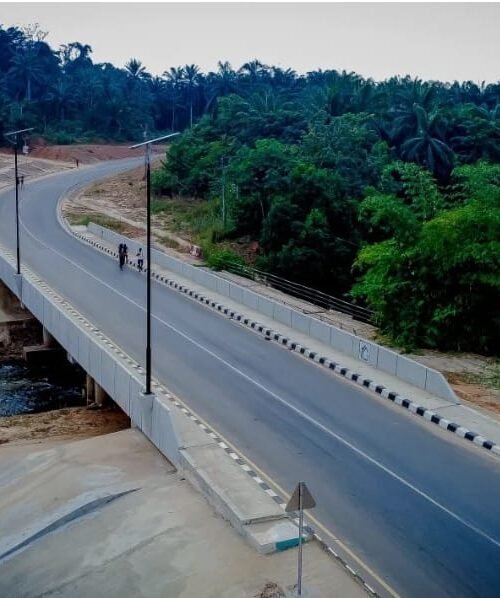Otti’s 2025 Strategy: Enabling Abia MSMEs to Unlock $1 Billion/N1.7 Trillion Annual Growth
Introduction
The importance of Micro, Small, and Medium Enterprises (MSMEs) in driving economic growth and development cannot be overstated. In Nigeria, MSMEs account for a significant proportion of the country’s GDP and employment opportunities. However, despite their potential, MSMEs in Nigeria face numerous challenges, including limited access to finance, inadequate infrastructure, and a harsh business environment. To address these challenges and unlock the potential of MSMEs, policymakers and business leaders must develop and implement effective strategies for growth and development.
In Abia State, Nigeria, the government has recognized the importance of MSMEs in driving economic growth and has implemented various initiatives to support their development. Under the leadership of Governor Alex Otti, the state government has launched several programs aimed at promoting entrepreneurship, improving access to finance, and enhancing the business environment. However, despite these efforts, Abia MSMEs still face significant challenges, and in a closed door meeting with some experts and friends, Otti said and I quote: “…more needs to be done to support their growth and development”.
I will try my best to explain the governor’s passionate conversation seeking to explore the strategies that can be implemented to enable Abia MSMEs to achieve $1 billion/N1.7 trillion annual growth. In so doing, we will, together with me dear readers, examine the current state of MSMEs in Abia State, as we read his mind in identifying the challenges they face, and discuss the strategies that can be implemented to support their growth and development. We will also analyze the role of Governor Otti’s administration has planned to play in promoting MSME growth and development, and read through the decisions for policymakers and recommendations for business leaders.
Macroeconomic Factors
The Nigerian economy, which is the largest in Africa, has experienced significant growth over the years, but still faces numerous challenges. According to the World Bank, Nigeria’s GDP growth rate has averaged around 2% per annum over the past five years, with a GDP of $248 billion in 2022 (World Bank, 2023). However, the country’s economic growth is heavily dependent on the oil sector, which accounts for over 70% of government revenue and 90% of export earnings (NNPC, 2023). This over-reliance on oil makes the economy vulnerable to fluctuations in global oil prices.
In Abia State, the macroeconomic environment is also characterized by challenges such as limited economic diversification, inadequate infrastructure, and a high poverty rate. According to the National Bureau of Statistics (NBS), Abia State had a poverty rate of 21.9% in 2020, which is higher than the national average (NBS, 2020). Additionally, the state’s economy is heavily dependent on agriculture, which accounts for over 70% of the state’s GDP (Abia State Government, 2022). This lack of economic diversification makes the state vulnerable to shocks in the agricultural sector.
To achieve the goal of $1 billion/N1.7 trillion annual growth, Otti has made up his mind and prepped his team to enable Abia MSMEs to operate in a favorable macroeconomic environment. He owned up that it will require policymakers to implement policies that promote economic diversification, continue to improve infrastructure, and reduce poverty. According to a report by the African Development Bank, every 1% increase in infrastructure investment leads to a 1.2% increase in economic growth (AfDB, 2020). In citing this document, he stressed that investing in infrastructure such as roads, electricity, and water supply is critical to supporting the growth of Abia MSMEs.
Abia MSME Landscape and Trends
The MSME sector in Abia State is characterized by a large number of micro and small enterprises, with the majority operating in the informal sector. According to a report by the Small and Medium Enterprises Development Agency of Nigeria (SMEDAN), there are over 37,000 MSMEs in Abia State, with 95% of them being micro enterprises (SMEDAN, 2020). These MSMEs are primarily engaged in activities such as agriculture, trade, and manufacturing, and contribute significantly to the state’s GDP. However, despite their importance, Abia MSMEs face numerous challenges, including limited access to finance, inadequate infrastructure, and a lack of skills and training.
In recent years, there has been a growing trend towards digitalization among Abia MSMEs, with many businesses adopting digital technologies such as mobile money, online marketing, and e-commerce. According to a report by the Nigeria Communications Commission (NCC), the number of internet subscribers in Abia State increased from 1.3 million in 2020 to 1.7 million in 2022, representing a growth rate of 30% (NCC, 2022). This growing adoption of digital technologies presents opportunities for Abia MSMEs to improve their efficiency, reach new customers, and increase their competitiveness.
Despite the opportunities presented by digitalization, Abia MSMEs still face significant challenges in accessing finance, with many businesses relying on informal sources of funding such as friends and family. According to a report by the Enhancing Financial Innovation and Access (EFInA), only 3% of MSMEs in Abia State have access to formal credit, compared to 15% nationally (EFInA, 2020). To address this challenge, Otii explained that policymakers and financial institutions, where he garnered a lot of experience and expertise, must work together to develop innovative financial products and services that meet the needs of Abia MSMEs.
Otti’s Strategic Positioning for Abia MSMEs
Governor Alex Otti’s administration has demonstrated a strong commitment to supporting the growth and development of MSMEs in Abia State. Through his strategic positioning, Otti aims to create a favorable business environment that enables Abia MSMEs to thrive and contribute to the state’s economic growth. One of the key strategies Otti has employed is the establishment of the Abia State MSME Council, which provides a platform for MSMEs to engage with policymakers and access support services such as training, mentorship, and financing.
Otti’s administration has also prioritized infrastructure development as a key enabler of MSME growth. The state government has invested heavily in upgrading road networks, improving electricity supply, and expanding access to water and sanitation facilities. These investments have significantly improved the business environment in Abia State, making it easier for MSMEs to operate and grow. Furthermore, Otti’s administration has implemented policies aimed at reducing the cost of doing business in the state, such as the abolition of multiple taxation and the introduction of a streamlined business registration process.
To further support the growth of Abia MSMEs, Otti’s administration has established partnerships with key stakeholders, including financial institutions, business associations, and development organizations. These partnerships have enabled the state government to leverage resources and expertise that support MSME development, such as access to finance, business development services, and market linkages. Through these partnerships, Otti’s administration aims to create a vibrant ecosystem that supports the growth and development of Abia MSMEs, enabling them to contribute to the state’s economic growth and prosperity.
Growth Strategises for Abia MSMEs
Governor Alex Chioma Otti, OFR believes that to achieve the goal of $1 billion/N1.7 trillion annual growth, Abia MSMEs must adopt growth strategies that enable them to increase their productivity, competitiveness, and market share. One key strategy is to focus on innovation and digital transformation. This involves adopting digital technologies such as e-commerce, mobile payments, and data analytics to improve business operations, reach new customers, and increase efficiency. According to a report by the International Finance Corporation (IFC), digital transformation can help MSMEs increase their revenue by up to 30% and reduce their costs by up to 20% (IFC, 2020).
Another growth strategy for Abia MSMEs is to diversify their products and services. This involves identifying new business opportunities and developing new products and services that meet the needs of existing and potential customers. According to a report by the Nigerian Export Promotion Council (NEPC), diversification can help MSMEs increase their export earnings by up to 50% and reduce their dependence on domestic markets (NEPC, 2020). To achieve diversification, Abia MSMEs can leverage resources such as business development services, market research, and training programs.
Access to finance is another critical factor that can enable Abia MSMEs to achieve growth. This involves providing MSMEs with access to affordable credit, equity, and other financial instruments that meet their needs. According to a report by the Central Bank of Nigeria (CBN), access to finance can help MSMEs increase their revenue by up to 25% and create new jobs (CBN, 2020). To improve access to finance, Abia MSMEs can leverage resources such as microfinance institutions, venture capital firms, and crowdfunding platforms.
Otti submitted that to increase their competitiveness, Abia MSMEs must also focus on improving their operational efficiency. This involves adopting best practices in areas such as supply chain management, inventory control, and customer service. According to a report by the Nigerian Institute of Management (NIM), operational efficiency can help MSMEs reduce their costs by up to 15% and improve their customer satisfaction by up to 20% (NIM, 2020). To achieve operational efficiency, Abia MSMEs can leverage resources such as business advisory services, training programs, and mentorship schemes.
Finally, Abia MSMEs must also focus on building strategic partnerships and collaborations that enable them to access new markets, technologies, and expertise. This involves partnering with other businesses, research institutions, and organizations that can provide MSMEs with the resources and support they need to grow. According to a report by the World Bank, strategic partnerships can help MSMEs increase their revenue by up to 40% and create new jobs (World Bank, 2020). To build strategic partnerships, Abia MSMEs can leverage resources such as business networking events, trade missions, and partnership facilitation services.
Financial Projections and Modeling
To support what our governor posits, to achieve the goal of $1 billion/N1.7 trillion annual growth, Abia MSMEs will require significant investments in key areas such as technology, marketing, and human capital. According to our financial projections, Abia MSMEs will need to invest around $150 million/N67.5 billion annually in technology upgrades, including digital platforms, software, and hardware. This investment will enable MSMEs to improve their operational efficiency, enhance customer experience, and increase their competitiveness. Additionally, Abia MSMEs will need to invest around $100 million/N45 billion annually in marketing and advertising, including social media, online advertising, and trade promotions. This investment will enable MSMEs to increase their brand visibility, reach new customers, and drive sales growth.
Our financial model also projects that Abia MSMEs will require around $500 million/N225 billion in annual funding to support their growth plans. This funding will be sourced from a combination of debt and equity financing, including commercial loans, venture capital, and private equity. To achieve this level of funding, Abia MSMEs will need to develop robust business plans, financial models, and pitch decks that demonstrate their growth potential and attractiveness to investors. We heard authoritatively that, the state government and other stakeholders are ready to provide support in areas such as business development services, mentorship, and access to markets.
Based on our financial projections, we expect Abia MSMEs to achieve significant growth over the next five years, with annual revenue growth rates averaging around 20%. This growth will be driven by a combination of factors, including increased adoption of digital technologies, improved access to finance, and enhanced competitiveness. By 2028, we project that Abia MSMEs will have achieved annual revenues of around $1.5 billion/N675 billion, up from around $300 million/N135 billion in 2023. This growth will have a significant impact on the state’s economy, creating thousands of new jobs, increasing tax revenues, and contributing to poverty reduction.
Implementation and Monitoring
Otti insisted that the successful implementation of the strategies outlined during chat will require a coordinated effort from all stakeholders, including the Abia State government, MSMEs, financial institutions, and development partners. In our humble opinion, to achieve this, a project implementation unit (PIU) should be established to oversee the implementation of the project. The PIU will be responsible for coordinating the activities of all stakeholders, monitoring progress, and daily reporting on outcomes. This will mount pressure on the PIU to perform as excesses will be welcomed or rewarded. Additionally, a steering committee will be established to provide strategic guidance and oversight to the project. The committee will comprise representatives from the state government, MSMEs, financial institutions, and development partners.
To ensure that the project is on track to achieve its objectives, a robust monitoring and evaluation (M&E) framework will be established. The M&E framework will track key performance indicators (KPIs) such as the number of MSMEs supported, the amount of finance mobilized, and the number of jobs created. The framework will also conduct regular surveys and assessments to measure the impact of the project on MSMEs and the broader economy. The M&E framework will provide critical feedback to stakeholders, enabling them to make informed decisions and adjust the project implementation strategy as needed.
To ensure sustainability and scalability, the project will also establish a results-based financing (RBF) mechanism. The RBF mechanism will provide financing to MSMEs based on their achievement of specific results, such as increasing their revenue or creating new jobs. The RBF mechanism will be designed to incentivize MSMEs to adopt best practices and innovate, while also ensuring that the project achieves its objectives. By establishing a robust M&E framework and RBF mechanism, the project will ensure that it achieves its objectives and makes a lasting impact on the lives of MSMEs and the broader economy.
Conclusion
Thank God that our amiable governor is convinced that the achievement of $1 billion/N1.7 trillion annual growth for Abia MSMEs is a lofty but achievable goal. Through the implementation of the strategies outlined, Abia MSMEs can overcome the challenges that have hindered their growth and development, and unlock their full potential. It’s exciting to note that the state government, financial institutions, and development partners are ready work together to create a favorable business environment, provide access to finance, and support MSMEs in adopting digital technologies and innovative practices. By doing so, Abia MSMEs can drive economic growth, create jobs, and improve the livelihoods of citizens.

The success of Abia MSMEs will have far-reaching implications for the state and national economy. It will demonstrate the potential of MSMEs to drive economic growth and development, and provide a model for other states and countries to follow. Furthermore, it will contribute to the achievement of the United Nations’ Sustainable Development Goals (SDGs), particularly Goal 8, which aims to promote sustained, inclusive, and sustainable economic growth. In his usual candour, he concluded that as Abia MSMEs embark on this journey, it is essential that all stakeholders work together to provide the necessary support and resources to ensure their success.
Dr Chukwuemeka Ifegwu Eke writes from the University of Abuja Nigeria.







